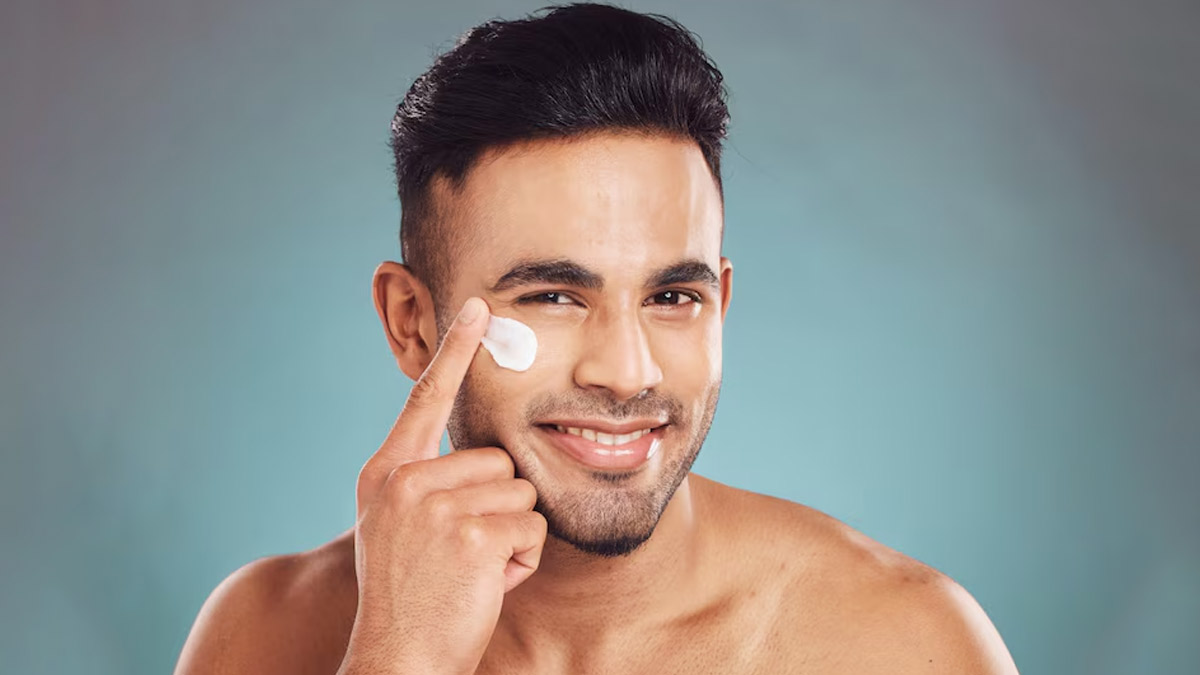
Dry skin is a universal complaint, manifesting as flakiness, tightness, and an all-around icky feeling. While effective hydration is something everyone seeks, the age-old issue arises in the world of skincare: should men and women, being biologically different, have different strategies for combating dry skin? The answer, as always when it comes to health, is complex and less a matter of gender and more a matter of individual skin types and lifestyle.
Table of Content:-
Understanding What Causes Dry Skin?
In an exclusive interaction with the editorial team of Onlymyhealth, Dr Sanjeev Gulati, Department of Dermatology, Sharda Hospital - Noida, explained that it's essential to know the underlying reasons for dry skin before discussing gender details. “The outermost layer of the skin, the stratum corneum, is a barrier to prevent moisture loss. The moment this barrier is disrupted, either because of environmental conditions, genetics, harsh product usage, or medical conditions, skin loses its water-retaining power, resulting in dryness,” he highlighted. According to Dr Gulati, some common causes are:
- Environmental Conditions: Low humidity (particularly in air-conditioned or heated air), cold temperatures, and harsh winds.
- Harsh Products: Soaps and cleansers with high pH, alcohol-based toners, and harsh exfoliants.
- Ageing: Our skin's natural ability to produce oil decreases as we grow older.
- Genetics: Certain people are more likely to have dry skin.
- Medical Conditions: Eczema, psoriasis, and thyroid disease can lead to dry skin.
- Lifestyle: Hot showers regularly, poor water consumption, and certain drugs.
Also Read: Did You Know Chia Seed Oil Can Make Your Skin Glow? Here's How

Biological Differences: Do They Matter for Dry Skin?
“It's true that male and female skin have some general differences,” Dr Gulati added. He further substantiated his statement as below:
Thickness: Male skin tends to be thicker than female skin because it has denser collagen. This may make male skin a bit more resistant to external aggressors, but not resistant to dryness.
Oil Production: Guys usually have more active sebaceous glands and therefore make more sebum (oil) than women, especially when they are in puberty and early adult years. This can result in oilier skin in men, but it doesn't preclude dry skin, particularly in particular spots or at certain times.
Hair Follicles: Men tend to have more and bigger hair follicles, which may affect how the product is absorbed and how some ingredients may interact with the skin (e.g., beard care).
Shaving: Ongoing shaving in men can weaken the skin barrier, increasing dryness and sensitivity.
Although these differences do occur, in the case of dry skin, the underlying process of barrier impairment and ineffective hydration remains the same in both genders.
"Why" Is More Important Than the "Who"
Rather than gender, the more important question is: what are your dry skin's individual needs? Dr Gulati pointed out that it is important to note the similarities in dry skincare regardless of gender. Dermatologists believe that a good dry skin care habit should include:

1. Gentle Cleansing
Use nourishing, non-foaming cleansers that won't rob your skin of its natural oils. Stay away from harsh soaps and very warm water.
2. Hydration is the Key
Use humectants (such as hyaluronic acid, glycerin, urea) that attract water into the skin, and emollients (such as ceramides, fatty acids, cholesterol) that repair the skin's barrier and lock in water.
3. Occlusives to Seal
Products such as petrolatum, shea butter, and dimethicone form a barrier that seals in moisture, particularly helpful for extremely dry or damaged skin.
4. Regular Moisturising
Apply moisturiser immediately after cleansing to trap moisture. Reapply throughout the day as needed.
5. Sun Protection
UV radiation can further damage the skin barrier, exacerbating dryness. Use a broad-spectrum sunscreen daily.
6. Avoid Irritants
Steer clear of fragrances, dyes, and harsh chemicals that can irritate dry, sensitive skin.
7. Internal Hydration
Getting enough water is part of overall healthy skin. It is recommended that you consume at least two to three litres of water every day.
Bottomline
In the end, the best skincare regimen for dry skin, both male and female, is a customised one. Rather than inquiring "Is this for women or men?", inquire:
- What are my skin's individual needs?
- What are my lifestyle considerations? (e.g., do I shave every day, am I around rough weather?)
- What textures and ingredients does my skin prefer?
- Do I have any underlying skin concerns?
While general biological differences exist between male and female skin, they don't necessitate entirely separate approaches to dry skin care. The fundamental principles of gentle cleansing, intense hydration, barrier repair, and protection remain universal. By understanding your own skin's unique requirements and adapting your routine accordingly, both men and women can effectively combat dryness and achieve healthy, comfortable skin. If you are experiencing persistent or severe dry skin, consulting a dermatologist is always recommended.
How we keep this article up to date:
We work with experts and keep a close eye on the latest in health and wellness. Whenever there is a new research or helpful information, we update our articles with accurate and useful advice.
Current Version